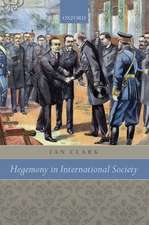U.S. Army Guard and Reserve: Rhetoric, Realities, Risks
Autor Martin Binkin, William W. Kaufmannen Limba Engleză Paperback – mai 1989
In the nearly two decades since the Nixon administration decided to withdraw U.S. armed forces from Vietnam and to end their dependence on conscription, America's military institution has undergone substantial changes. One of the most pronounced has been the increased reliance on Army reserve components, which today shoulder unprecedented responsibilities for protecting the nations security. Of special importance have been the growing expectations about the capabilities and readiness of the Army National Guard and the Army Reserve. Reserve components would now be among the first to be used in a range of possible conflicts—from limited contingencies involving rapid deployment forces to a major confrontation in Central Europe between NATO and the Warsaw Pact. This shift has been instituted with little public fanfare or debate yet the consequences could be dramatic and far-reaching. It raises the central question Binkin and Kaufmann address: How has greater reliance on Army reserves affected the nation's ability to protect its security?
Preț: 157.96 lei
Nou
Puncte Express: 237
Preț estimativ în valută:
30.24€ • 31.55$ • 25.35£
30.24€ • 31.55$ • 25.35£
Carte tipărită la comandă
Livrare economică 12-26 martie
Preluare comenzi: 021 569.72.76
Specificații
ISBN-13: 9780815709794
ISBN-10: 081570979X
Pagini: 174
Ilustrații: illustrations
Dimensiuni: 152 x 229 x 11 mm
Greutate: 0.25 kg
Editura: Brookings Institution Press
Colecția Brookings Institution Press
ISBN-10: 081570979X
Pagini: 174
Ilustrații: illustrations
Dimensiuni: 152 x 229 x 11 mm
Greutate: 0.25 kg
Editura: Brookings Institution Press
Colecția Brookings Institution Press
Notă biografică
Martin Binkin is a senior fellow in the Brookings Foreign Policy Studies program and the author or coauthor of several books in the Brookings Studies in Defense Policy series.
William W. Kaufmann, professor emeritus at the Massachussetts Institute of Technology, is a senior fellow in the Foreign Policy Studies Program at Brookings, where he also holds the Sydney Stein, Jr., Chair in International Security. He is the author of numerous books, including Glasnost, Perestroika, and U.S. Defense Spending (1990), and coauthor of Decisions for Defense: Prospects for a New Order (1991).
William W. Kaufmann, professor emeritus at the Massachussetts Institute of Technology, is a senior fellow in the Foreign Policy Studies Program at Brookings, where he also holds the Sydney Stein, Jr., Chair in International Security. He is the author of numerous books, including Glasnost, Perestroika, and U.S. Defense Spending (1990), and coauthor of Decisions for Defense: Prospects for a New Order (1991).
Descriere
In the nearly two decades since the Nixon administration decided to withdraw U.S. armed forces from Vietnam and to end their dependence on conscription, America's military institution has undergone substantial changes. One of the most pronounced has been the increased reliance on Army reserve components, which today shoulder unprecedented responsibilities for protecting the nations security. Of special importance have been the growing expectations about the capabilities and readiness of the Army National Guard and the Army Reserve. Reserve components would now be among the first to be used in a range of possible conflicts—from limited contingencies involving rapid deployment forces to a major confrontation in Central Europe between NATO and the Warsaw Pact. This shift has been instituted with little public fanfare or debate yet the consequences could be dramatic and far-reaching. It raises the central question Binkin and Kaufmann address: How has greater reliance on Army reserves affected the nation's ability to protect its security?













